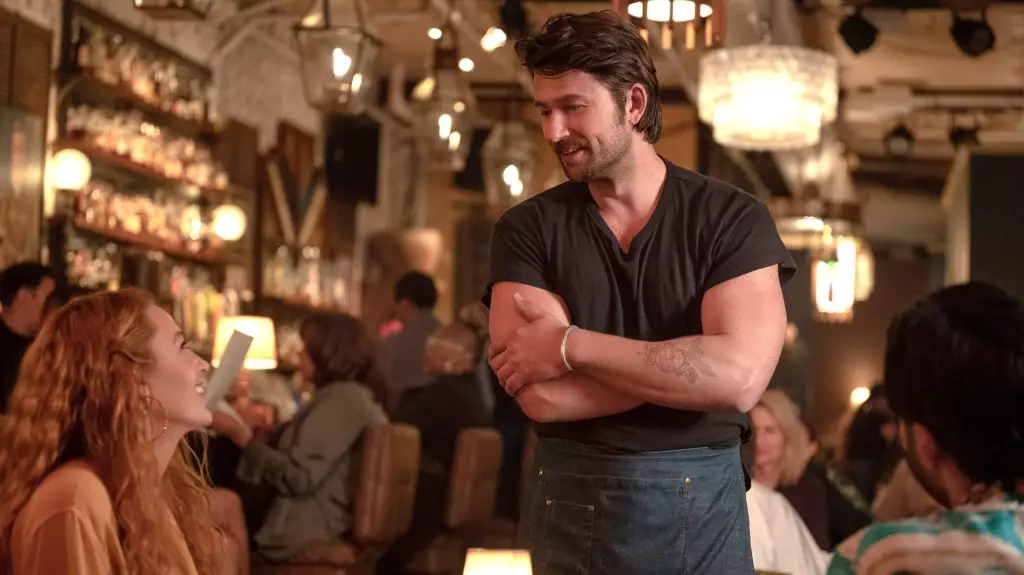In a landscape increasingly scrutinized for its treatment of women and accusations of misconduct behind the scenes, the recent allegations against director and actor Justin Baldoni have stirred significant controversy in Hollywood. The actor Brandon Sklenar, known for his role in the upcoming film “It Ends With Us,” has emerged as a vocal supporter of co-star Blake Lively following the shocking revelations outlined in a complaint against Baldoni. This complaint, which spans an eye-opening 80 pages, articulates serious accusations of sexual harassment and misconduct, while also detailing what some perceive as a calculated smear campaign against Lively, who has bravely voiced her grievances regarding an alleged hostile work environment during the film’s production.
Further complicating matters, Sklenar took to his social media platforms, urging followers to read Lively’s complaint. His emphatic post, overflowing with emotion, beckoned viewers to understand the gravity of the situation. “FOR THE LOVE OF GOD READ THIS,” he implored, attaching a link to the New York Times article covering the incident. This rallying cry from Sklenar not only spotlights his solidarity with Lively but also indicates a broader discontent within the industry concerning how women are treated, especially when they dare to speak out against their male counterparts.
The response to the allegations has been swift and pronounced, with several high-profile figures rallying to Lively’s defense over the weekend. Celebrities including Gwyneth Paltrow and Amy Schumer, along with Lively’s former co-stars from “The Sisterhood of the Traveling Pants,” have publicly shown their backing for her. Even the distributor of the film, Sony, has issued statements supportive of Lively, further emphasizing the seriousness of the claims against Baldoni. The collective outcry embodies a stark departure from previous Hollywood responses to similar allegations; rather than stifling dissent, the industry seems to be galvanizing around calls for accountability.
In stark contrast, the fallout for Baldoni has been immediate and severe. His agency, WME, cut ties with him, indicating a significant shift in the industry’s narrative when faced with accusations of this magnitude. This decisive action underscores an emerging zero-tolerance policy for unchecked misconduct, setting a precedent that might encourage others to come forward in a climate historically characterized by silence and complicity. Liz Plank, a co-host on Baldoni’s podcast “Man Enough,” also severed ties with him, raising further concerns about his leadership and conduct.
Lively’s complaint delineates a disturbing pattern of behavior that allegedly contributed to a toxic atmosphere during filming. Among the myriad claims, disturbing allegations reveal Baldoni’s purported behaviors, such as inappropriate remarks, unsolicited sexual content, and boundary violations during private moments—like unexpectedly entering her trailer, even when she was breastfeeding. These behaviors, according to Lively, contributed to an environment that was detrimental enough to jeopardize production, an assertion that cannot be taken lightly given the implications of workplace safety and respect in the film industry.
Moreover, the complaint points to a concerted effort by Baldoni and the production company to undermine Lively’s credibility after she voiced her concerns. This so-called astroturfing—manipulative campaigns designed to create the illusion of grassroots support—paints a grim picture of the lengths to which some may go to silence dissenters. The implications of this tactic extend beyond Lively and Baldoni, posing questions about the dynamics of power within Hollywood itself.
As the dust settles, the repercussions of this situation extend far beyond just the individuals involved. It catalyzes broader conversations about gender dynamics, power imbalances, and the need for systemic change within the entertainment industry. While sentiments of support abound, there remains a pronounced concern about the cyclical nature of allegations and the ensuing fallout. Many are watching closely to see if this incident sparks an ongoing commitment to reform or if it becomes a footnote in Hollywood’s complex and often troubling history of addressing harassment claims.
The mounting public discourse encapsulates a moment of reckoning that demands more than just words; it necessitates actions that safeguard women and create an environment where artistic expression can flourish without fear of harassment. The call for change is louder than ever, and the spotlight is on Hollywood to respond appropriately and make meaningful strides toward a safer, more equitable industry.


Leave a Reply